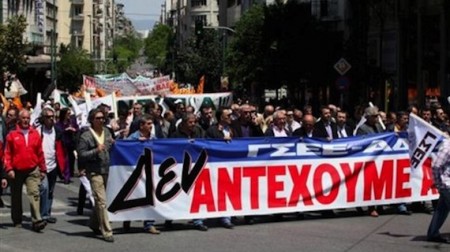
Today we are witnesses of the privatization of knowledge as power. It seems that is not enough that a small group of people own the large majority of natural resources in the Third World countries,leaving no hope of real development to the natives that can’t fight the Western corporations’power;the same is gradually happening for knowledge. One can say that our will to knowledge,the same good that seemed at hand to everybody due to the information revolution,is being re-oriented,regulated;and real knowledge is now acquired as an highly paid commodity.
Due to this trend,the category of ‘unemployable’is no longer linked to the old idea of ‘reserve army of labour’ala Marx,but to a massive amount of people who are gradually dropping ‘out of history’;they simply can not keep up with the demands of the First World capitalism,which is mostly based on expertise and speed.
This capitalism’s functionality is based on a vast immaterial labour,which play its role on a structural base,and produce results out of communication and co-operation. The immaterial production is at its core bio-political and symbolic;and as biopolitics refer to the application of life sciences’theories toward the scientific understanding of human political behaviour,one can argue that in the end the whole system is accepted as serving nothing else but its own survival.
Each government following this system works through regulative mechanisms that are able to account for aleatory and ‘unpredictable’ phenomena on a global scale,by determining and keeping events within an acceptable average. Therefore,bio-political decisions regulate on a global scale;they are ‘power to make live.[...] regulate mortality’,as Foucault says.
Serving this logic,the new implemented social mechanisms –sustained by the information revolution –not only have deleted the old model of large scale centralized power,but have also privatized valuable knowledge. Competence is what counts;and in a model in which the old fashion entrepreneur that owns his company is a rarity,since companies get acquired by banks,the interpersonal relationships that once played an important role are now a memory. As the general intellect is in the hands of those people able to have access to knowledge,the large majority of the work-force is in itself highly expendable,and superfluous as an individual.
Commenting on this situation,Slavoj Žižek states that “in this new ideal type of capitalism,the old bourgeoisie,rendered non-functional,is refunctionalised as salaried management” ( in ‘The Revolt of the Salaried Bourgeoisie’). This is the most striking quality of the times we live in,“the bourgeoisie in the classic sense […] tends to disappear:capitalists reappear as a subset of salaried workers,as managers who are qualified to earn more by virtue of their competence.” –still Slavoj Žižek. The rest of the middle class workers slide towards the bottom of the working pyramid,at risk of becoming proletariat.
In most cases,the people protesting on the roads today live on the wages offered to the lower levels of the salaried bourgeoisie;and they see in political protest the only way to avoid joining the proletariat. In this arena,old logics of political struggle are put into action,totally missing their aims due to their obsolete nature,lack of vision,and indecision in facing the sad truth:the proletariat has acquired the status of a ‘structurally unemployable’mass and is the bourgeoisie’s primary source of fear not because of its power,but because no bourgeois clerk wishes to become a proletarian worker.
“It would be unpredictable what such event would provoke in the population’s psychic”told me a professor in economics;I could only answer that the results of such a process are already visible in Greece,and elsewhere:uncertainty,loss of hope,deprivation,disintegration,riots,violence,looting,chaos.
Interesting enough,Žižek admits that Greece is in itself a different case. From his point of view:“in the last decades,a new salaried bourgeoisie (especially in the over-extended state administration) was created thanks to EU financial help,and the protests were motivated in large part by the threat of an end to this.”
As the divide deepens,and on the opposite end of the unemployable stands an irrationally high remunerated bank manager,one can’t but asks herself which is the way to correct a system,capitalism,that seems to be out of control;and certainly not able to regulate itself so to bring benefit to society as a whole.
Some words come to mind and might be worthy of reflection:‘For millennia,man remained what he was for Aristotle:a living animal with the additional capacity for a political existence;modern man is an animal whose politics places his existence as a living being in question.’ (Michel Foucault,History of Sexuality 1:The will to knowledge)